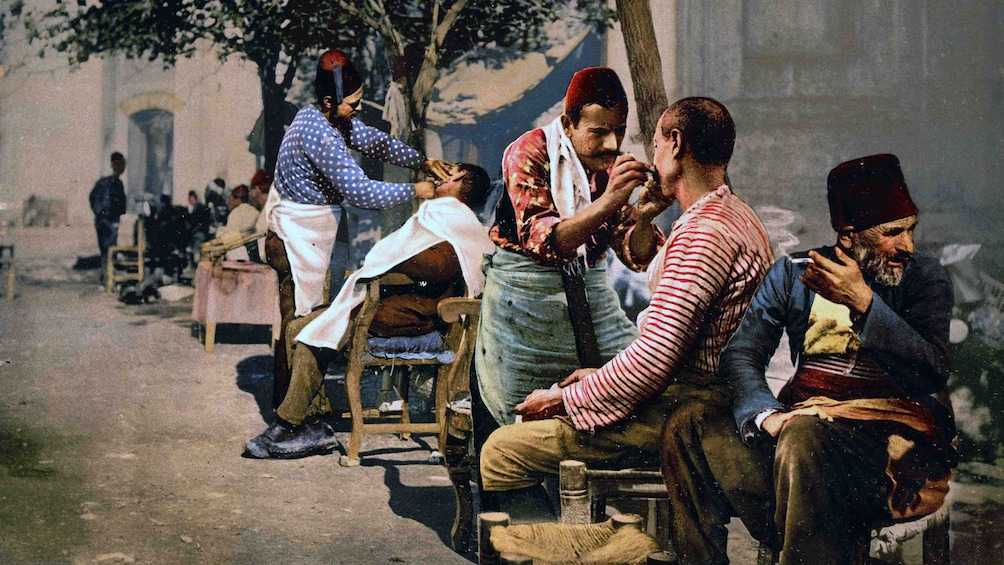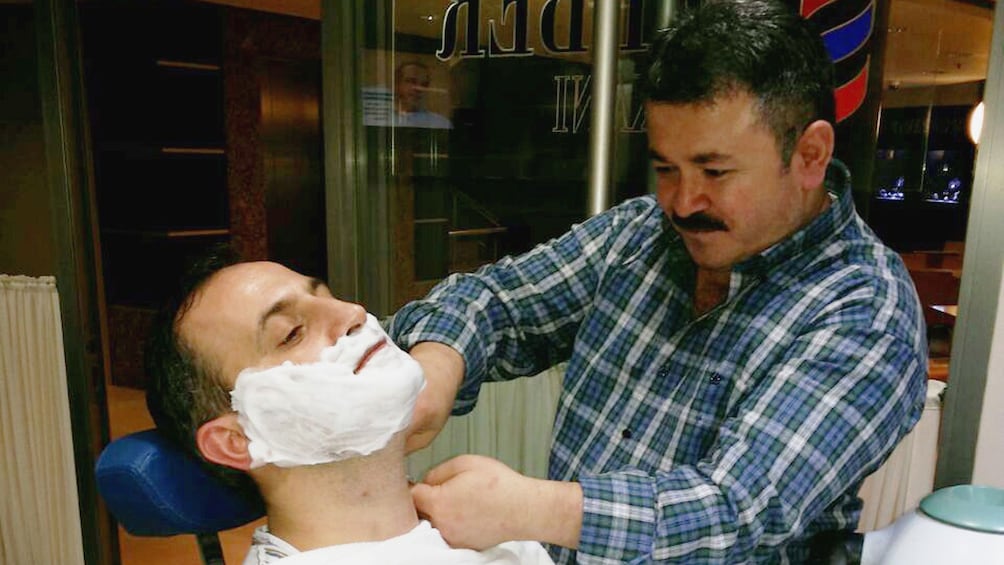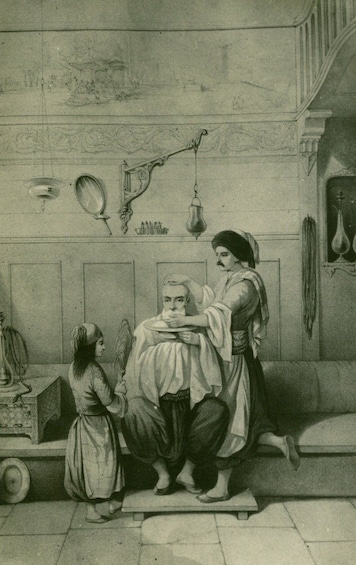Turkish Barber Mastery เป็นประเพณีที่มีมายาวนานหลายศตวรรษ ตั้งอยู่บนเสาหลักอันแข็งแกร่งที่มีรากฐานมาจากยุคออตโตมัน ผู้ที่ปรารถนาจะเป็นช่างตัดผมจะต้องผ่านการทดสอบภาคปฏิบัติอันเข้มงวดหลายชุด เพื่อประเมินความสงบ ทักษะ และความสามารถในการจัดการอารมณ์ของตน แม้ว่ามันอาจจะฟังดูเหมือนเป็นนิทานสมัยก่อน แต่แนวคิดแบบเดียวกันนี้ก็ยังโชคดีที่ยังคงมีอยู่ในตุรกียุคใหม่
ในร้านตัดผมท้องถิ่นในตุรกี จรรยาบรรณทางวิชาชีพมีความสำคัญมากกว่าประสบการณ์ โดยไม่ต้องรีบเร่งเพื่อเพิ่มความเชี่ยวชาญ อย่างไรก็ตาม มีความเชื่ออย่างยิ่งว่าจรรยาบรรณวิชาชีพมีความสำคัญต่อแต่ละบุคคล ความจริงใจและความไว้วางใจที่เป็นรากฐานของความสัมพันธ์ระหว่างช่างตัดผมกับลูกค้ามีความสำคัญสูงสุด ซึ่งอธิบายได้ว่าทำไมช่างตัดผมชาวตุรกีจึงเป็นที่ต้องการอย่างมากในประเทศอื่นๆ มากมาย
ร้านตัดผมโดยสรุป
ในศตวรรษที่ 18 และ 19 ช่างตัดผมคล้ายกับพ่อค้าเร่ โดยโกนขนลูกค้าได้เกือบทุกที่ ไม่ว่าจะเป็นร้านกาแฟ บ้าน หรือแม้แต่ตามท้องถนน ทักษะและฝีมือของพวกเขาขยายออกไปมากกว่าการโกนขน ช่างตัดผมระดับปรมาจารย์จะทำงานต่างๆ เช่น การให้เลือด ขั้นตอนการผ่าตัดเล็กๆ น้อยๆ การทำความสะอาดบาดแผล กำจัดเหา การทำความสะอาดเส้นผม “การขลิบ” และการถอนฟัน อย่างไรก็ตาม ในโลกสมัยใหม่ การปฏิบัติเหล่านี้ไม่ได้เป็นส่วนหนึ่งของการกระทำอีกต่อไป
การโกนและดูแลขนแบบตุรกีดั้งเดิมสำหรับผู้ชาย
เครื่องมือหลักของช่างตัดผมคือมีดโกนซึ่งใช้ในการโกน การโกนแบบตุรกีแบบดั้งเดิมมีชื่อเสียงในด้านการใช้ “มีดโกนแบบตัดคอ” อย่างเชี่ยวชาญโดยช่างตัดผม ซึ่งเป็นระดับความเชี่ยวชาญที่จะเกิดขึ้นได้ก็ต่อเมื่อผ่านการฝึกอบรมและประสบการณ์หลายปีเท่านั้น อย่างไรก็ตาม ช่างตัดผมไม่ได้เน้นแค่การตัดผมและการโกนเท่านั้น
หากคุณมีขนบนใบหน้าที่ไม่พึงประสงค์ ช่างตัดผมสามารถกำจัดขนออกโดยใช้เชือกเส้นเล็กหรือวิธีการพิเศษอื่นๆ พวกเขายังจะให้บริการนวดหน้าเพื่อปลอบประโลมผิวของคุณ และหากจำเป็น ก็สามารถมาส์กเพื่อทำให้ใบหน้าของคุณนุ่มขึ้นและดูแลได้




